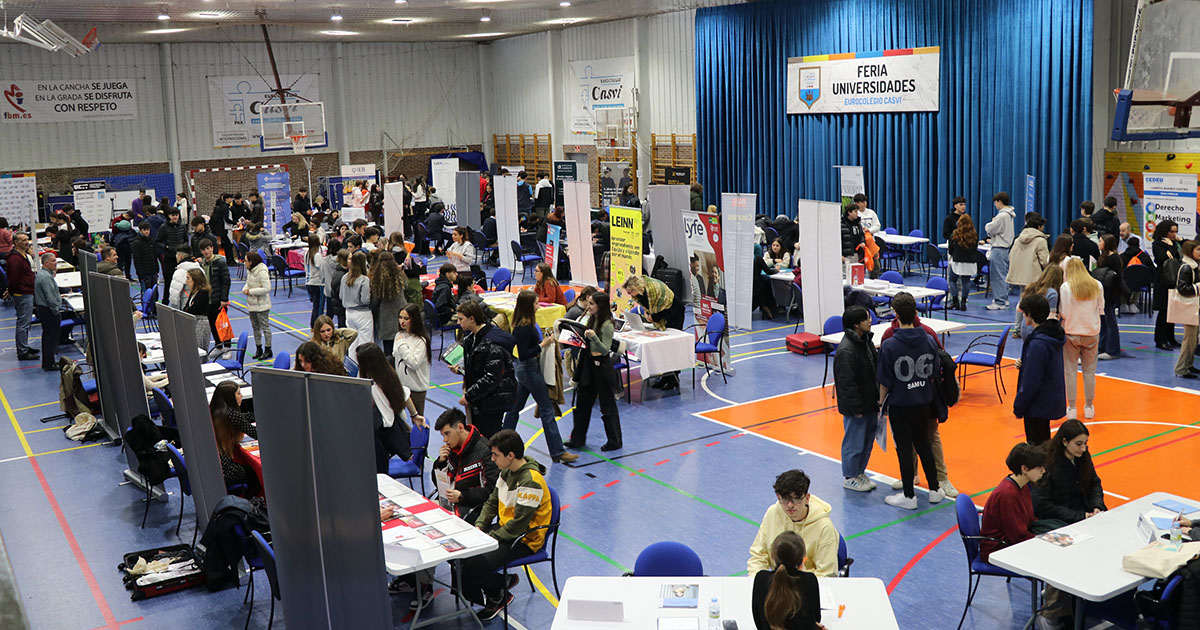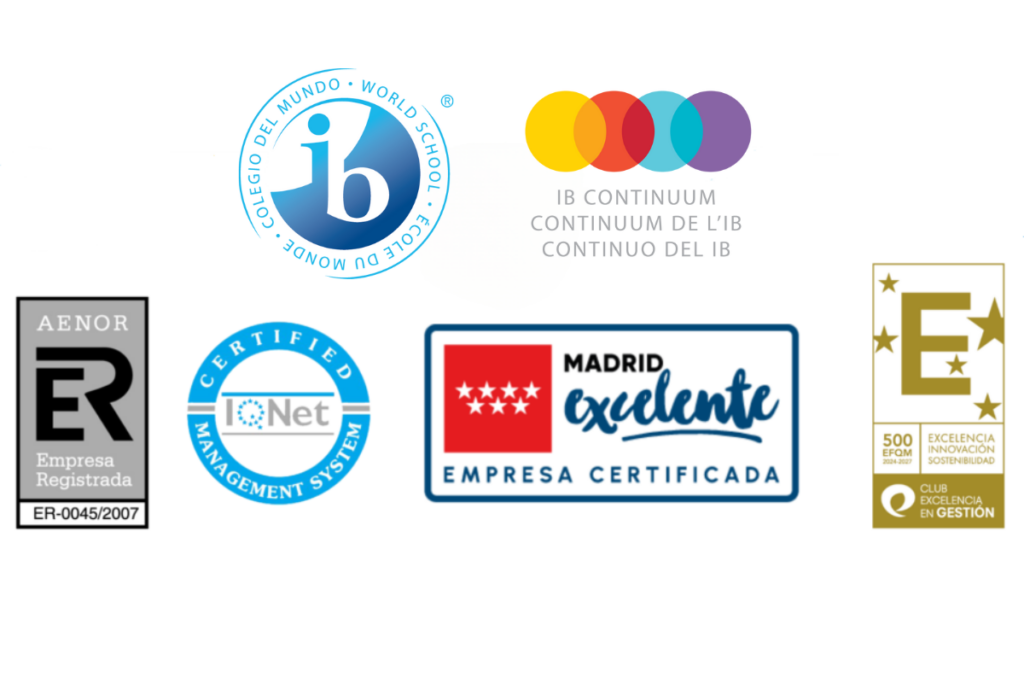Welcome to our journey, where we will explore the fascinating world of vocational guidance. Discovering your potential and charting a path to a successful future is an art that requires understanding, exploration and informed decision-making. Join us as we unravel the secrets of vocational guidance and how it can positively impact your life.
WHAT IS VOCATIONAL GUIDANCE?
Vocational guidance, at its core, is the beacon that guides our educational and professional choices. What is it exactly? It is the process of self-exploration and evaluation that helps us understand who we are, what our passions are and how we can translate them into a meaningful career. It is the process of self-exploration and evaluation that helps us understand who we are, what our passions are and how we can translate them into a meaningful career.
THE EVOLUTION OF VOCATIONAL GUIDANCE
Vocational guidance finds its roots in ancient practices where mentors and leaders advised young people on career choices. In ancient times, the transmission of knowledge and personal experiences was the seed of what we know today as vocational guidance.
With the advent of the Industrial Revolution, vocational guidance became more structured.
The 20th century saw the emergence of vocational guidance as a formal discipline. Psychological and educational theories, such as those of Frank Parsons, contributed to the formalisation of the process. Parsons introduced the notion of aptitudes, interests and values as crucial elements in vocational decision-making, laying the foundations for modern vocational guidance.
Over time, psychometric tests gained prominence in vocational guidance. These assessments, such as the famous Holland Vocational Interest Test, offered a more objective methodology for assessing individuals’ vocational preferences.
With the advent of the digital age, vocational guidance has undergone a significant transformation. Online platforms, tests virtual and interactive tools expanded the possibilities of guidance, making it more accessible and personalised. Technology enabled deeper skills analysis and greater adaptability to changing labour market dynamics.
Already in the 21st century, vocational guidance has acquired a crucial role in modern society. It has become a beacon guiding individuals of all ages through the jungle of career options. It is no longer just advice; it is an essential tool for meeting the challenges and seizing the opportunities in today’s complex employment landscape.
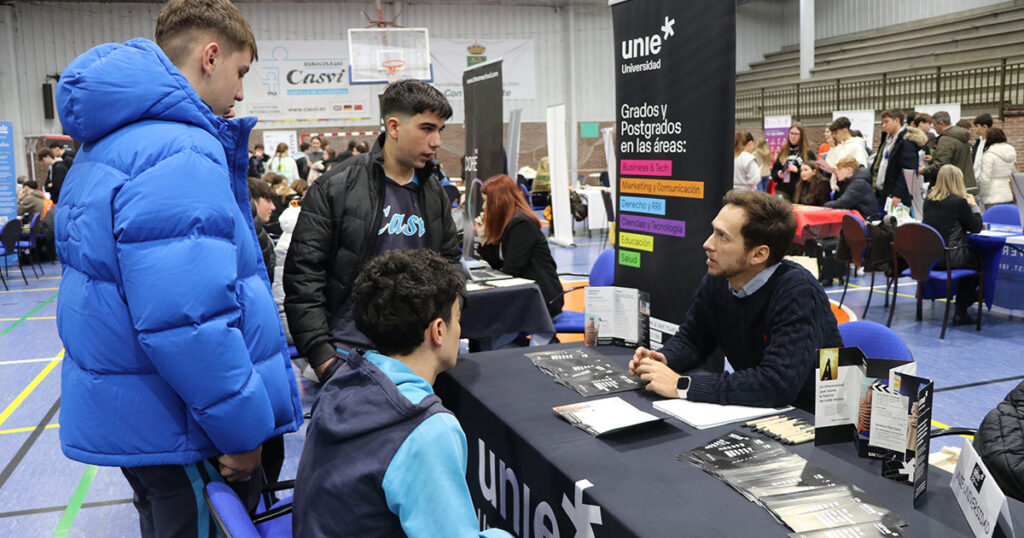
VOCATIONAL GUIDANCE: A NECESSITY
The problems associated with a lack of vocational guidance are varied and profound, affecting individuals, families and society as a whole. The pressing need to address these issues has led to the implementation of programmes and policies at government level, supported by experts and organisations committed to a more informed and fulfilling future for all.
1.- DISCONNECTION BETWEEN CHOICES AND CAREER SATISFACTION
For vocational psychologist María González, “many individuals are forced to face a disconnect between their career choices and their job satisfaction. This can lead to demotivation, stress and a diminished quality of life”.
2.- LACK OF KNOWLEDGE ABOUT CAREER OPTIONS
According to data from the NGO “Professions with Purpose”, 40% of young people lack knowledge about the various career options available. This leads to hasty and often inappropriate career choices.
3.- EXCESSIVE SOCIAL AND FAMILY PRESSURE
The government’s influence in this regard is important. Aware of the pressure students face, many of them have implemented vocational guidance programmes in schools. Aware of the pressure students face, many of them have implemented vocational guidance programmes in schools. Vocational guidance is essential to alleviate this burden and guide fundamental decisions”.
4.- LABOUR MARKET IN CONSTANT CHANGE
Government statistics reveal that unemployment and underemployment among young people are due, in part, to inappropriate career choices. Vocational guidance is presented as a
5.- INCREASE IN WORK-RELATED MENTAL HEALTH CRISES
Lack of career satisfaction is a significant contributor. Vocational guidance is positioned as a preventive tool to reduce the incidence of work-related mental health problems.
6.- YOUTH UNEMPLOYMENT AND UNDEREMPLOYMENT
Government statistics reveal that unemployment and underemployment among young people are due, in part, to inappropriate career choices. Vocational guidance is presented as a preventive strategy to address this problem.
7- SKILLS GAP AND LABOUR DEMAND
Organisations such as “Sustainable Professional Development” highlight the gap between the skills of individuals and the demands of the labour market. Vocational guidance emerges as a strategy to close this gap, ensuring a better alignment between skills supply and demand.
8- INCREASE IN SCHOOL AND UNIVERSITY DROP-OUTS
The increase in school and university dropouts, related to unsatisfactory academic choices, has led to government initiatives to implement vocational guidance programmes from an early age.
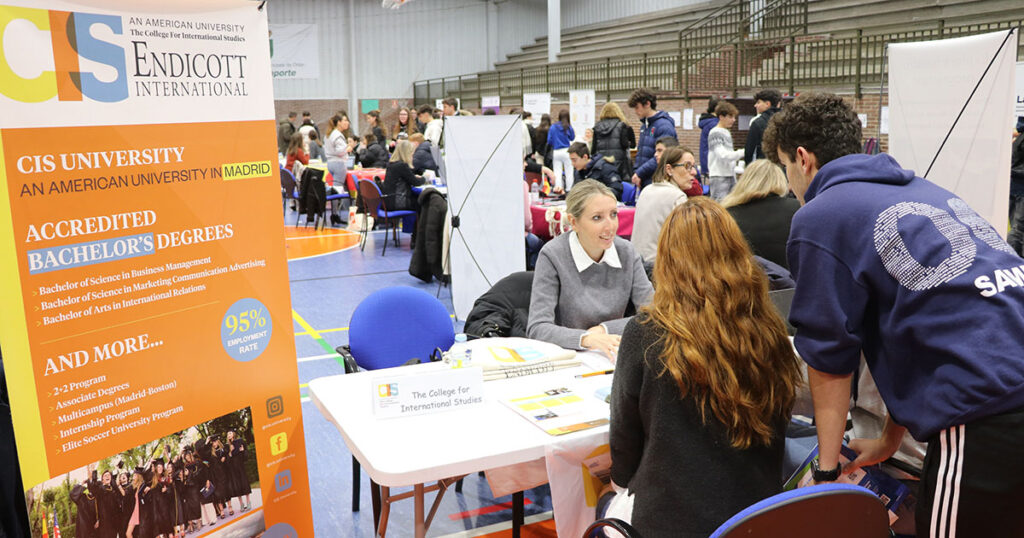
BENEFITS OF GOOD VOCATIONAL GUIDANCE
Vocational guidance goes beyond mere guidance. Its benefits have a direct impact on quality of life and personal well-being. We will explore two key aspects that highlight the importance of effective vocational guidance:
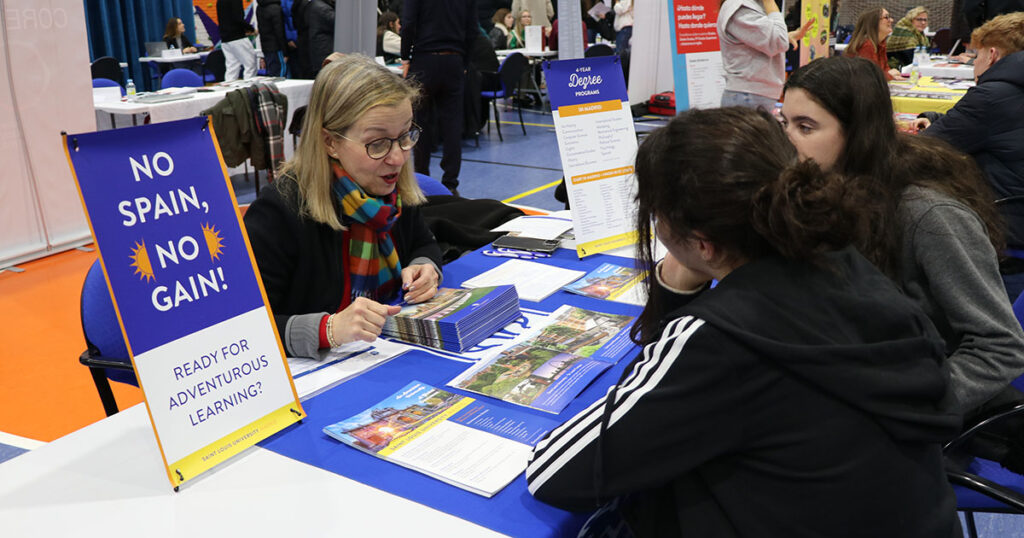
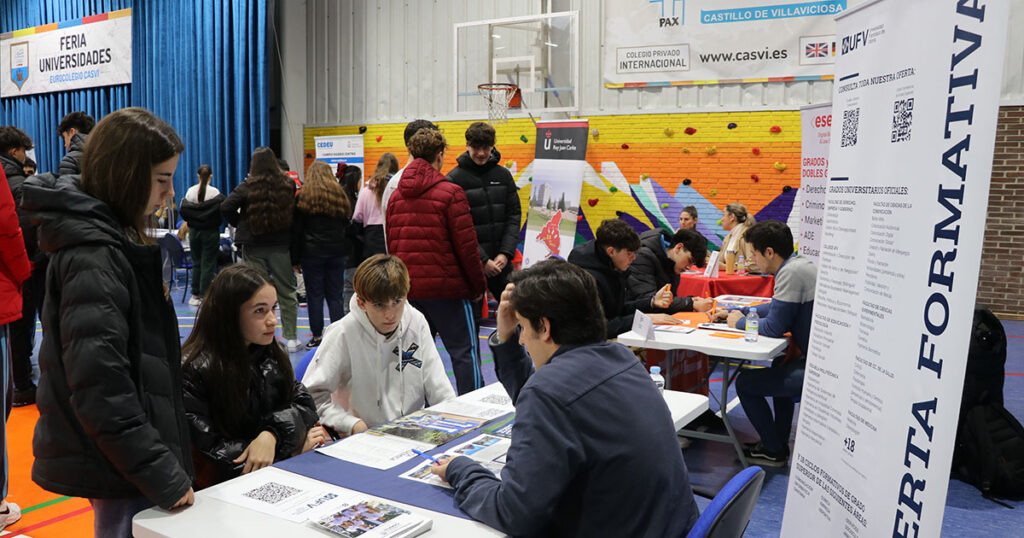
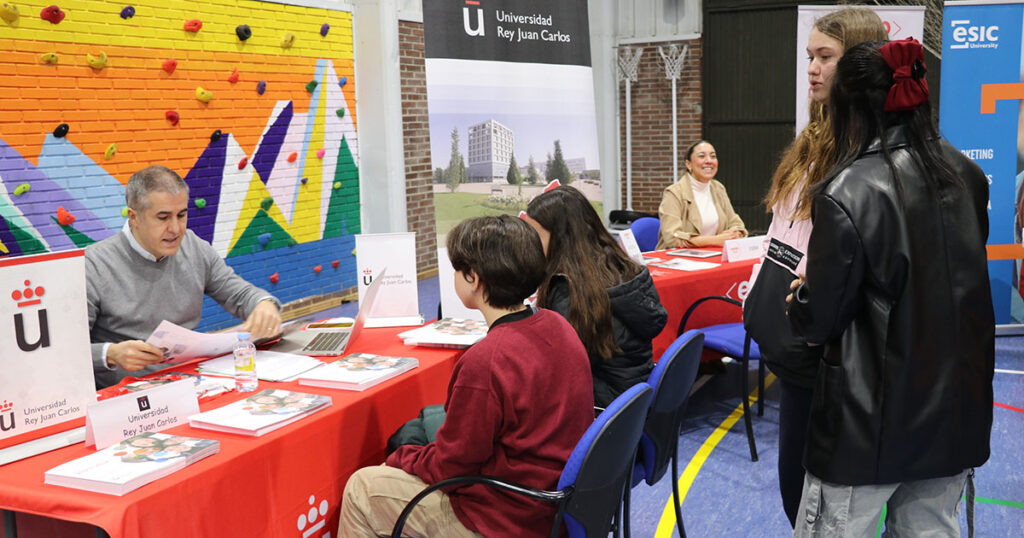
CONNECTION BETWEEN PASSION AND CAREER
Aligning passion with career is one of the most significant benefits of good career guidance. When individuals discover how their interests and skills intertwine with career choices, a deeper and more satisfying connection to work is created. This bond not only boosts motivation and work engagement, but also drives a clearer sense of purpose and personal fulfilment.
The ability to pursue a career that resonates with one’s individual passion not only positively impacts job performance, but also contributes to a fuller and more rewarding life. Effective vocational guidance acts as the bridge that facilitates this connection, enabling individuals to chart a career path that genuinely reflects their interests and aspirations.
REDUCTION OF STRESS AND UNCERTAINTY
The decision-making process related to education and career is often accompanied by stress and uncertainty about the future. This is where good vocational guidance acts as a buffer, providing clarity and direction.
By having a clear understanding of the career options that best suit their skills and interests, individuals experience a significant reduction in the stress associated with decision-making. Effective vocational guidance provides valuable information that dispels uncertainty, allowing individuals to make informed decisions and feel more confident about their professional future.
Reducing stress and uncertainty not only benefits mental and emotional health, but also creates an environment conducive to learning and growth. With a clear compass to guide the way, individuals can face challenges with greater confidence, knowing that they are en route to a career that resonates with their identity and professional goals.
THE IMPORTANCE OF STARTING VOCATIONAL GUIDANCE AT AN EARLY AGE
The road to a successful career begins long before the choice of university. The importance of starting vocational guidance at an early age lies in laying the foundation for informed educational and career decisions.
STRATEGIES FOR MENTORING SECONDARY SCHOOL STUDENTS
Studying abroad is an ideal option for students who have studied according to international methodologies such as the International Baccalaureate After completing programs such as the PYP and the MYP, students continue to pursue an international education. That is why this type of initiative is of great help to today’s students.
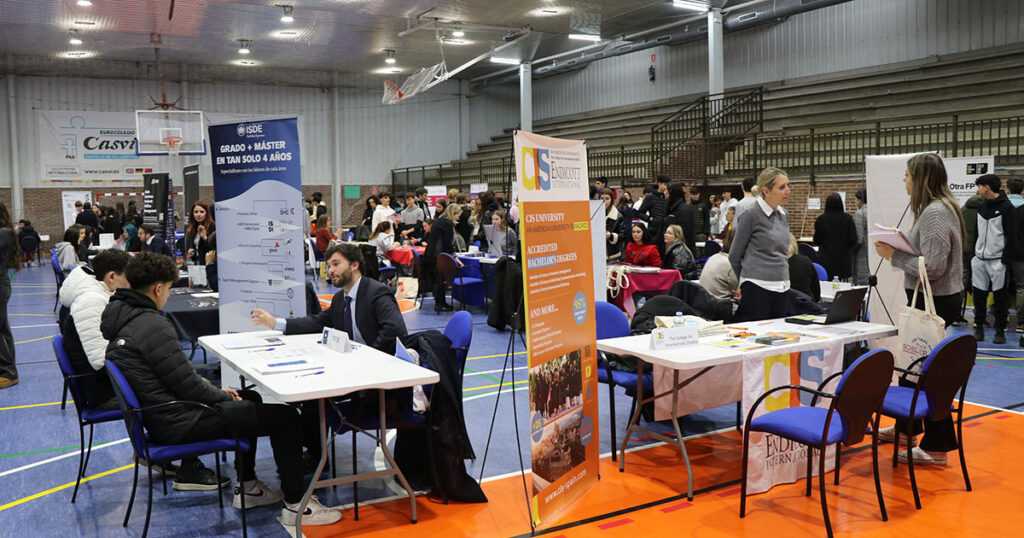
Exploration of interests and skills
From the beginning of secondary school, it is vital to encourage active exploration of interests and skills. Interactive sessions, extracurricular activities and school projects can be valuable tools for discovering individual inclinations.
Mentoring and personalised advice
Establishing mentoring programmes where students can interact with professionals in different fields gives them real insights into various careers. Personalised counselling during this formative period contributes to a deeper understanding of each student’s goals and aspirations.
Visits to institutions and companies
Organising visits to educational institutions and companies enables students to visualise working environments and understand the practical application of different professions. These enriching experiences provide a more complete and realistic picture of possible career paths.
Development skills workshops
Workshops that develop cross-cutting skills such as communication, teamwork and problem solving from secondary school onwards are essential. These skills are fundamental to any career and give students a competitive advantage in their professional development.
VOCATIONAL ORIENTATION TEST IN PRE-UNIVERSITY EDUCATION
Identification of individual preferences
The application of vocational orientation tests in pre-university education helps to identify students’ individual preferences. Assessing their interests, skills and values provides a solid basis for future decision-making.
Awareness of career options
Vocational orientation tests not only provide information about specific careers, but also raise awareness about a variety of career options. This is crucial to avoid limitations and to allow students to explore areas they may not have previously considered.
Support in the choice of subjects and specialisations
The results of the vocational tests guide the choice of subjects and specialisations according to the students’ inclinations and aptitudes. This optimises their academic experience and paves the way for higher education aligned with their career goals.
Development of a personalised career plan
Based on the results of the vocational orientation tests, a personalised career plan can be developed for each student. This plan will include recommendations on academic programmes, extracurricular activities and possible internships that will strengthen their preparation for future professional life.
HOW VOCATIONAL ORIENTATION TESTS WORK
Vocational Guidance Tests are fundamental tools that provide a structured and accurate picture of an individual’s aptitudes, interests and abilities. Understanding how these vocational tests work is essential to make the most of the valuable information they provide. Let us look at the key components and the evaluation process.
TIPS FOR PLANNING THE WEEK
PROFESSIONAL INTERESTS
Orientation tests assess an individual's career interests. Specific questions about activities, work environments and professional situations help to identify areas of greatest satisfaction and engagement.
TECHNICAL SKILLS AND ABILITIES
The analysis of technical skills and abilities is essential to align the individual's skills with the demands of the labour market. Orientation tests assess specific skills related to particular occupational fields, providing clear guidance on the areas where the individual may excel.
VALUES AND MOTIVATIONS
The assessment of values and motivations is a crucial component of vocational orientation tests. Knowing which aspects are priorities for the individual, be it social contribution, autonomy or work-life balance, helps to define the type of work and career environment that best suits his or her needs.
EVOLVING SKILLS AND INTERESTS
PSYCHOMETRIC TESTS
Orientation tests use psychometric tests to measure cognitive abilities, verbal and numerical skills, as well as problem-solving ability. These results provide a clear picture of the individual's intellectual capacities.
INTEREST QUESTIONNAIRES
Break your academic tasks into smaller, more manageable steps. This will facilitate the process of addressing them and avoid procrastination.
ASSESSMENT OF INTERESTS
Through detailed questionnaires, specific professional interests are assessed. Questions related to daily activities, work preferences and aspirations help to build a complete profile of the individual's interests and career orientation.
INTERVIEWS AND BEHAVIOURAL ASSESSMENT
Some vocational tests include interviews or simulated situations to assess behaviour and responses in specific contexts. These assessments provide information on adaptability, interpersonal skills and management of work situations.
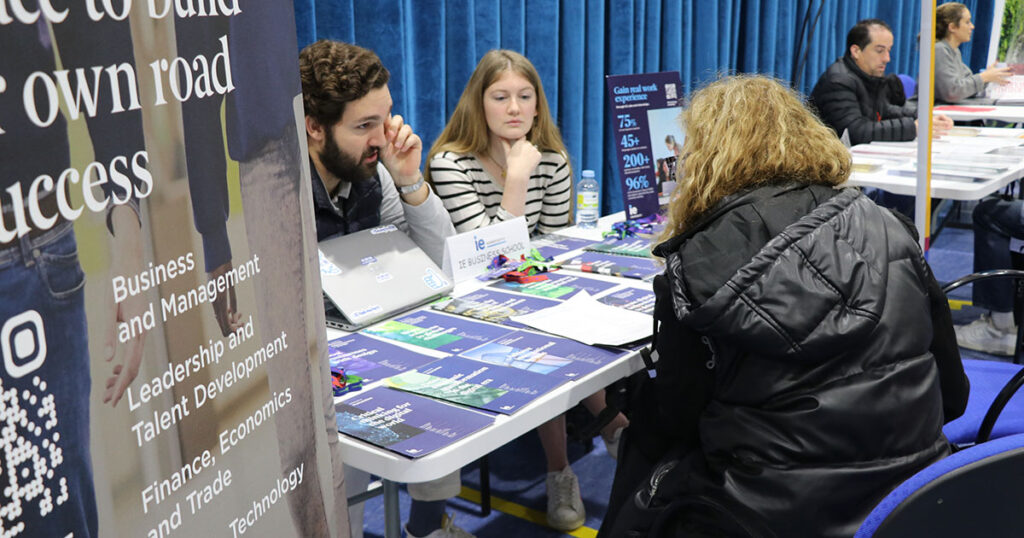
TYPES OF VOCATIONAL TESTS
The diversity of personalities, abilities and aspirations requires a variety of approaches in career guidance testing. In the following, we will explore the different types of tests, highlighting the variety of approaches and their adaptability to different age groups.
1.PROFESSIONAL ATTITUDE TEST
These tests assess specific skills related to particular occupational fields. They may include practical tests that measure technical skills and manual dexterity, providing accurate guidance on related careers.
2. VOCATIONAL PERSONALITY TEST
These career orientation tests focus on personality traits relevant to work environments. They assess aspects such as extroversion, risk tolerance and adaptability, providing information about the individual’s adjustment to specific work roles and environments.
3. PROFESSIONAL INTEREST QUESTIONNAIRES
These orientation tests explore the individual’s career preferences and motivations. Questions related to everyday activities, work environments and professional situations help to build a detailed profile of vocational interests.
4. GENERALISED PSYCHOMETRIC TESTS
These vocational and career orientation tests assess cognitive skills, verbal and numerical skills, and problem-solving abilities. They provide a holistic view of the individual’s intellectual capacities, offering guidance on career fields where they can excel.
In conclusion, what is also a priority is adaptability to different age groups. This ensures that vocational and career guidance tests are relevant and effective at various stages of life. By providing approaches specific to the needs and experiences of each individual, these tests become valuable tools for guiding educational and professional decisions at any stage of development.
HOW TO INTERPRET AN ORIENTATION TEST
The interpretation of the results of a Guidance Test is crucial for extracting valuable information and guiding educational and professional decisions. We will look at two fundamental aspects in more detail:
1. IDENTIFYING STRENGTHS AND SKILLS
Outstanding skills
The results reveal the skills and aptitudes in which the individual excels. Identifying these strengths allows them to be harnessed in a career choice that maximises potential and job performance.
AREAS OF DEVELOPMENT
Identifying weaknesses not only points out areas for improvement, but also provides the opportunity to develop skills needed for specific careers. This knowledge makes it possible to draw up an action plan to strengthen the required competences.
COMPATIBILITY WITH CAREERS
By analysing strengths and weaknesses in vocational tests, compatibility with different professional fields can be determined. This information guides towards options that align with the individual's natural abilities, optimising success and satisfaction in the chosen career.
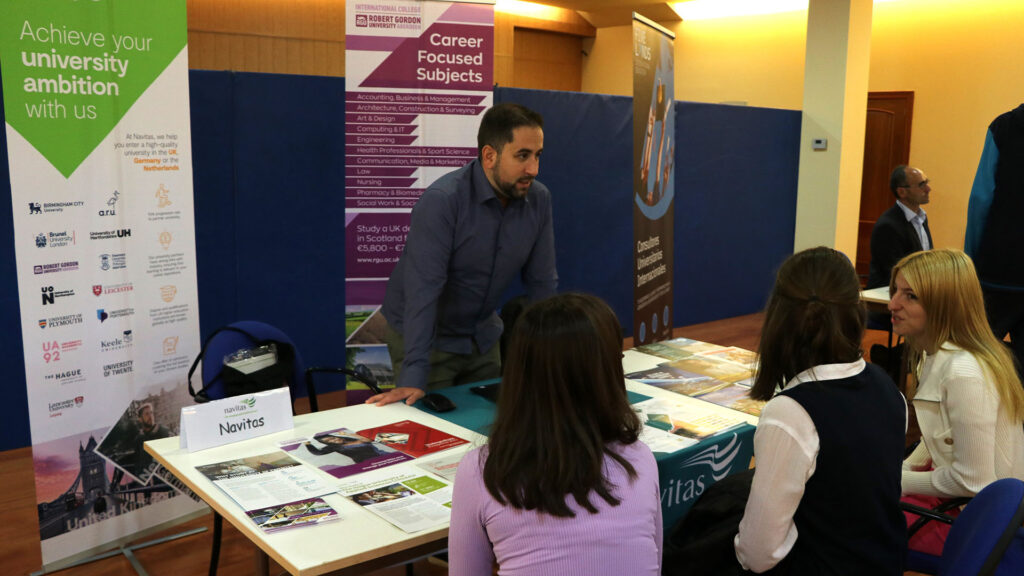
2. RELATIONSHIP BETWEEN INTERESTS AND POSSIBLE CAREERS
PROFESSIONAL AFFINITIES
The results of the vocational and professional orientation test reveal the individual's professional interests. Identifying these affinities provides clear guidance on specific areas that can generate job satisfaction and engagement.
EXPLORING OPTIONS
La relación entre intereses y posibles carreras amplía la visión sobre las opciones disponibles. La relación entre intereses y posibles carreras amplía la visión sobre las opciones disponibles.
CONNECTION WITH THE WORKING ENVIRONMENT
Understanding how interests align with the work environment and professional demands is essential. This connection provides a realistic view of working life in different fields, enabling informed decisions.
DEVELOPMENT OF PROFESSIONAL OBJECTIVES
The interpretation of the relationship between interests and possible careers in a career orientation test contributes to the development of clear career goals. Setting specific goals based on personal affinity ensures a greater likelihood of success and satisfaction in the chosen career.
THE INTEGRATION OF VOCATIONAL GUIDANCE IN THE EDUCATIONAL FIELD
Effective integration of vocational guidance into the educational setting is essential to guide students towards informed academic and career choices. Let us examine two key aspects of this integration:
COLLABORATION BETWEEN TEACHERS AND COUNSELLORS
1. Share relevant information
At this school in Villaviciosa de Odón they believe that the decision-making process should be carried out by the pupils themselves. However, the educational community (tutors, teaching staff, guidance department) and families have an important role to play in guiding and informing pupils with appropriate vocational guidance.
Vocational guidance in Casvi Villaviciosa is carried out from an early age. From Kindergarten onwards, they get to know different professional sectors through career days in which they learn about the world of work from workers in different fields.
Collaboration between teachers and counsellors involves the constant exchange of relevant information about students’ academic performance, skills and behaviour. This collaboration allows for a comprehensive understanding of each student, facilitating personalised recommendations.
2. Identifying talents and skills
Teachers, being in daily contact with students, can identify specific talents and skills. This information is shared with counsellors, who incorporate it into the vocational guidance process to suggest careers aligned with individual strengths.
3. Advice on choice of subjects
Teachers, by understanding students’ goals and aspirations, can offer specific guidance on courses and subjects that will strengthen their academic and professional profile.
VOCATIONAL GUIDANCE SESSIONS
Vocational guidance sessions offer a dedicated space to explore students’ interests and abilities. Through interactive discussions, quizzes and activities, personal reflection on future academic and professional choices is encouraged.
These sessions are also used to present professional resources. Information on academic programmes, educational institutions and career profiles helps students understand the options available and make informed choices.
In addition, they may include the simulation of working environments. These experiences give students a realistic view of different professions, helping them to visualise their future career and understand the expectations of the world of work.
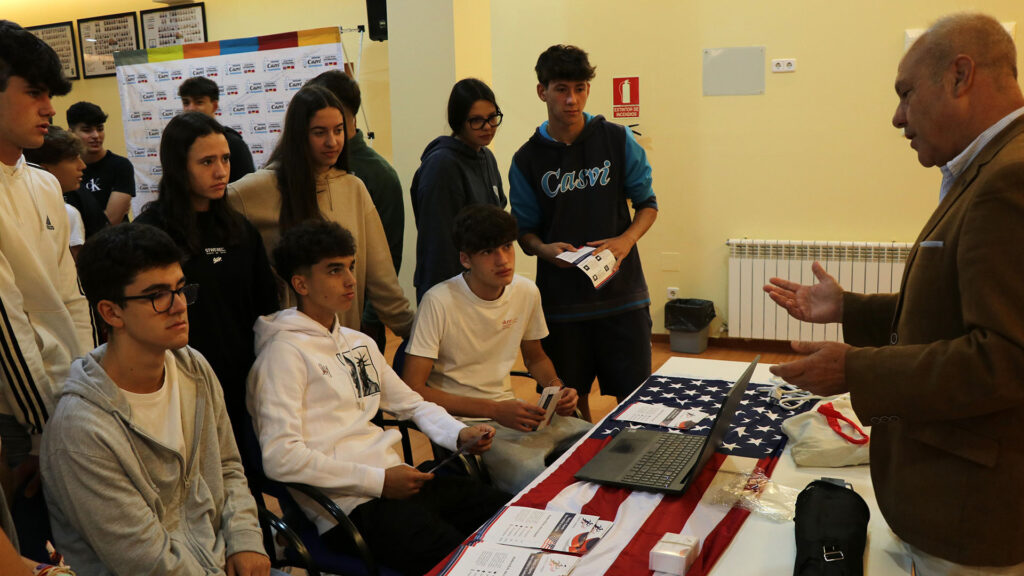
EXPLORATION OF TRADES AND PROFESSIONS
The phase of vocational exploration plays a crucial role in the process of vocational guidance. There are two fundamental elements:
VIRTUAL TOOLS TO EXPLORE VARIOUS OPTIONS
- Online Guidance Platforms
- Racing Simulators
- Multimedia Resources
- Career and Professional Profile Databases
TESTIMONIALS FROM SUCCESSFUL PROFESSIONALS
- Connecting with Practitioners: Students can participate in talks, webinars or events where practitioners share their experiences, challenges and achievements.
- Virtual Professional Networking: Professional networking platforms such as LinkedIn offer the opportunity to connect with professionals from various industries.
- Inspiring Stories: Incorporating inspiring stories of professionals who overcame obstacles and achieved success motivates students.
- Career Guidance Events: These events offer students the opportunity to ask direct questions and get first-hand information.
VOCATIONAL GUIDANCE AND CAREER GUIDANCE: DIFFERENCES AND SIMILARITIES
We will compare how vocational and career guidance is approached. From a holistic approach in personal and professional development to specific strategies in university guidance, we will understand the differences and similarities between the two concepts.
It should be specified, however, that vocational and professional guidance are closely related but nuanced concepts.
DIFFERENCES BETWEEN VOCATIONAL GUIDANCE AND CAREER GUIDANCE
Time focus
Vocational guidance focuses mainly on career choices and educational decision-making during early educational stages, such as adolescence and secondary education. Career guidance tends to address more advanced aspects of careers, including job changes, continuing professional development and strategies for career advancement.
Scope of the process
Vocational guidance focuses on helping individuals discover and understand their interests, abilities and values in order to make coherent educational choices. Career Guidance broadens the focus to more career-specific aspects.
Target audience
Vocational Guidance is primarily aimed at students and people who are in the early stages of making educational and career decisions. La Orientación Vocacional está principalmente dirigida a estudiantes y personas que están en las primeras etapas de la toma de decisiones educativas y profesionales.
SIMILARITIES BETWEEN VOCATIONAL GUIDANCE AND CAREER GUIDANCE
- Focus on Personal Development: Both disciplines share the objective of fostering the personal and professional development of individuals, helping them to understand their skills, interests and values.
- Decision Support. The main purpose of both vocational and career guidance is to provide support in making crucial decisions related to education and career.
- Skills and Interests Assessment. Both disciplines use skills and interest assessments to provide valuable information to guide educational and career choices.
- Adaptability over Time. They recognise the need to adapt over time. Educational and career decisions may change, and both approaches offer tools and strategies to adjust to new circumstances.
THE ROLE OF UNIVERSITY GUIDANCE IN CAREER CHOICE
University guidance plays an essential role in career choice by guiding students through a crucial stage of their lives. This process impacts on decision-making and the academic and professional development of individuals.
From the exploration of options to ongoing counselling and consideration of non-traditional opportunities, this process contributes significantly to the academic and professional development of individuals throughout their university career.
FACTORS TO EVALUATE WHEN CHOOSING A UNIVERSITY DEGREE
Choosing a university degree is a crucial decision that significantly influences a student’s professional and personal future. Here we explore the key factors that must be assessed when making this momentous decision.
- Personal Interests and Passions
- Intereses y Pasiones Personales
- Labour and Market Outlook
- Salary Expectations and Benefits
- Desired Lifestyle
- Personal Values and Work Ethics
- Requirements and Duration of the Educational Programme
By assessing these factors holistically, students can make informed decisions aligned with their personal goals and values, ensuring a university pathway that is fulfilling and meaningful for their professional and personal development.
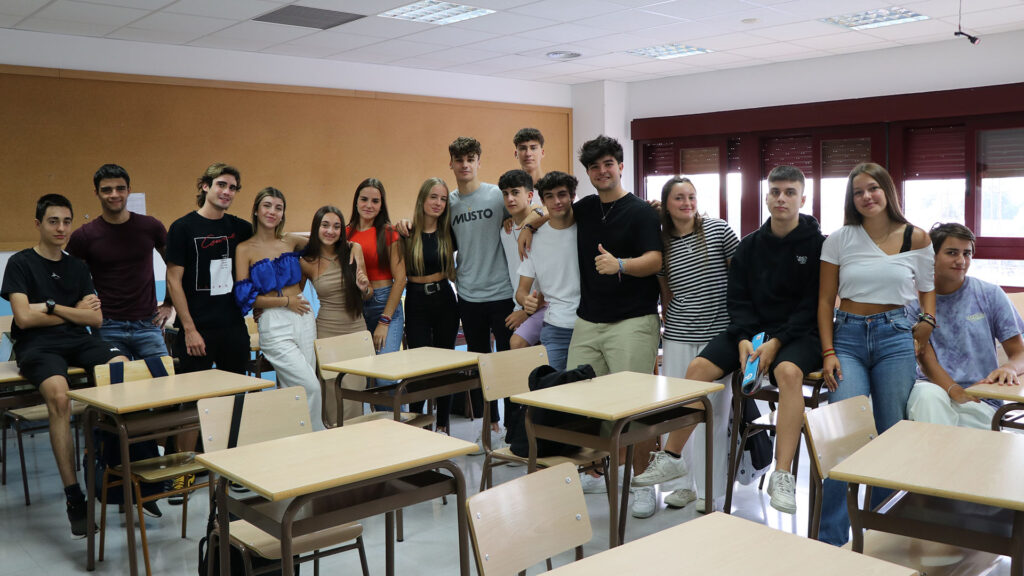
BEST CAREERS TO STUDY TODAY
The choice of a university degree is a crucial decision and, nowadays, it is essential to consider labour market trends. Here we take a look at the best careers to study because they are booming and in high demand and offer significant opportunities in the professional world.
1.- DATA SCIENCE AND ANALYTICS
With the rise of digitalisation, careers related to data science and analytics are in high demand. Professionals who can interpret large data sets are essential for business decision-making.
2.- SOFTWARE ENGINEERING AND WEB DEVELOPMENT
Continuous technological development drives the need for experts in software engineering and web development. The creation of applications, websites and customised software is essential in the digital age.
3.- HEALTH SCIENCES
Among the best careers to study are also those related to health, such as nursing, physiotherapy and medical technology, which are in constant demand. The ageing population and medical advances contribute to the need for health professionals.
4.- RENEWABLE ENERGIES AND SUSTAINABILITY
With an increasing focus on sustainability, careers in renewable energy, environmental engineering and sustainable management are experiencing a surge in demand. Concern for the environment drives these areas.
ARTIFICIAL INTELLIGENCE AND MACHINE LEARNING
The rise of artificial intelligence and machine learning creates opportunities in areas such as algorithm programming, machine learning and business process automation.
PSYCHOLOGY AND MENTAL HEALTH
Awareness of mental health has increased, generating a growing demand for careers in psychology and counselling. Professionals trained to address mental health problems are essential in diverse communities.
7.- CYBERSECURITY
In an increasingly digital world, cyber security is becoming crucial. En un mundo cada vez más digital, la ciberseguridad se vuelve crucial.
9.- DIGITAL MARKETING
Digital transformation has led to a shift in marketing strategies. Among the best careers to study are those related to digital marketing, SEO and social media management. These are essential for companies seeking to establish their online presence.
EDUCATION AND TECHNOLOGY
With the integration of technology in education, careers related to teaching technology skills are on the rise. Professionals able to educate about programming, web development and digital skills are increasingly needed.
11.- LOGISTICS
Supply chain efficiency is vital in a globalised world. Among the best careers to study are those linked to logistics and supply chain management.

HOW VOCATIONAL GUIDANCE IMPACTS ON PERSONAL DEVELOPMENT
Vocational guidance not only guides career choice, but also has a profound impact on the personal development of individuals. Let's see how this process can positively influence various aspects of personal growth.
Connection between career choices and Personal Satisfaction
Alignment with Values and Passions
: Vocational guidance enables individuals to align their career choices with their personal values and passions. This connection contributes to a deeper sense of satisfaction and fulfilment in daily work.
EMOTIONAL WELL-BEING
Making conscious work decisions aligned with the inner self reduces stress and anxiety related to job dissatisfaction. Harmony between professional choices and personal values improves emotional well-being.
Relationship between Vocational Guidance and Mental Health
Conscious Choices and Emotional Stability
Vocational guidance helps individuals to make conscious decisions about their professional future. These conscious choices are linked to greater emotional stability and reduced levels of stress and anxiety.
SENSE OF PURPOSE
Finding a career aligned with one's life purpose contributes significantly to mental health. The sense of contributing unique skills to society provides a sense of purpose and achievement.
STRESS AND ANXIETY REDUCTION
PROFESSIONAL ADAPTABILITY
Vocational guidance helps individuals understand their abilities and limitations, enabling them to adjust and adapt to work environments more effectively. This adaptability reduces the stress associated with work challenges.
EXPECTATION MANAGEMENT
With clear university guidance on their strengths and areas for improvement, individuals can set realistic expectations about their careers. This avoids frustration and stress caused by unrealistic expectations.
THE INFLUENCE OF PARENTS ON THE VOCATIONAL EDUCATION OF THEIR CHILDREN
Children’s vocational oritation is a crucial stage that is often shaped by parental influence and guidance. How parents deal with this process can have a significant impact on their children’s career choices and future development.
OPEN COMMUNICATION AND RESPONSIBLE ADVICE
- Ongoing Dialogue: Encouraging an open and ongoing dialogue about children’s career aspirations is essential. Establishing a space where children feel comfortable sharing their thoughts and concerns contributes to more informed decision-making.
- Responsible Counselling: Provide counselling that not only reflects parents’ expectations, but also considers children’s unique abilities, interests and goals. Responsible counselling involves understanding and supporting individual choices.
STRATEGIES TO SUPPORT EDUCATIONAL AND PROFESSIONAL DECISIONS
- Joint Research: Actively participate in joint research in different educational and professional fields. Assisting in the collection of information on various careers enables parents to better understand the options available and provide informed guidance.
- Skills and Abilities Exploration: Identifying and supporting the development of children’s natural skills and abilities. Recognising and nurturing individual strengths contributes to decisions that are more aligned with each child’s unique abilities.
SUPPORT IN THE DECISION-MAKING PROCESS
- Managing Expectations: Managing expectations realistically is essential. Recognising that children may have goals and abilities that differ from parental expectations allows for more effective support in the decision-making process.
- Encouraging Autonomy: Encouraging autonomy in decision-making gives children the confidence to follow their own paths. This support encourages responsibility and commitment to career choices.
INSPIRATIONAL CONCLUSION FOR CHILDREN IN VOCATIONAL GUIDANCE
- Inspire Confidence: Conveying a positive message and confidence in children’s abilities. Inspiring them to pursue their dreams and goals, regardless of the difficulty, contributes to a stronger sense of self-efficacy.
- Unconditional Support: Provide unconditional support during challenges and changes in the career path. Knowing that they have the support of their parents motivates children to overcome obstacles and follow their passions.
VOCATIONAL ORIENTATION AT THE INTERNATIONAL PUBLIC SCHOOL EUROCOLEGIO CASVI
At this school in Villaviciosa de Odón they believe that the decision-making process should be carried out by the pupils themselves. However, the educational community (tutors, teaching staff, guidance department) and families have an important role to play in guiding and informing pupils with appropriate vocational guidance.
Vocational Guidance in Casvi Villaviciosa is carried out from an early age. From Kindergarten onwards they learn about different professional sectors through career days in which they learn about the world of work from workers in different fields.
VOCATIONAL GUIDANCE ACTIONS IN CASVI VILLAVICIOSA
– Activities are carried out so that students know and value their own abilities, motivations and interests, reflecting on their competences, abilities, aptitudes… In this way, in different courses, students complete different vocational orientation questionnaires.
– We provide information on educational and employment options by providing links and participating in Fairs with Advisors and Fairs with Universities. In addition, a meeting with former students is organised so that they can receive first-hand information about different higher education studies and career opportunities.
-Within the vocational guidance at Eurocolegio Casvi International Private School, individual interviews are also held to advise each student taking into account their individual needs, involving their family. Special attention is paid to students with specific situations (elite athletes, high abilities, special educational needs…) in order to offer a tailor-made response.
– Informative meetings are held with families to inform them of the centre’s options.
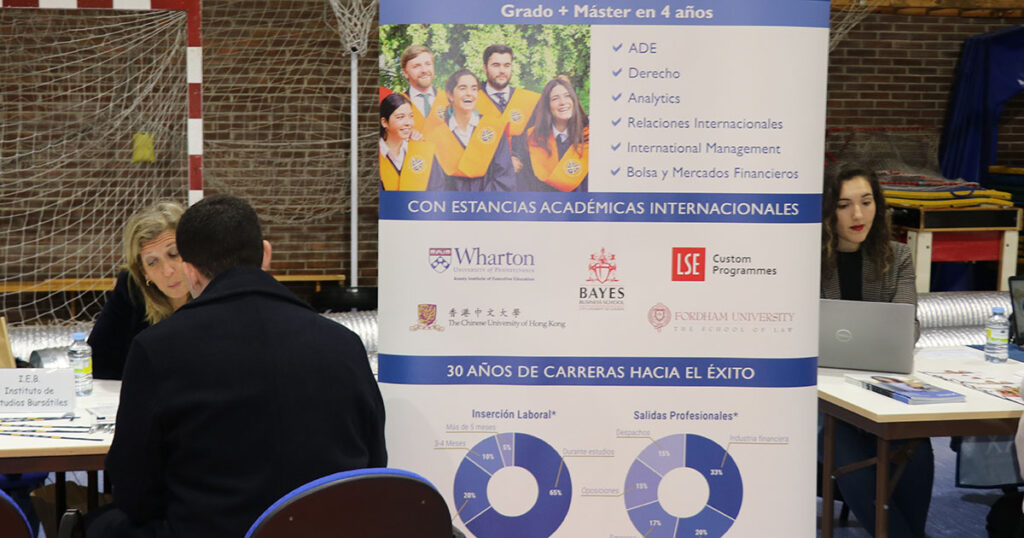
– Moreover, we are aware that the professional and training landscape is changing rapidly and it is therefore essential that the vocational guidance The Guidance Department offers its students, in a personalised way, different possible professions with high employability that fit their profile. They are advised on the academic training necessary to achieve them.
– The internationalisation of students is promoted by providing information on access to higher education in different educational systems. Students’ contact with advisory agencies and admissions officers at international universities is facilitated.
Discover your way to the future!
Explore the opportunities for vocational guidance at Colegio Privado Internacional Eurocolegio Casvi. Visit our website to find out how we guide our students towards successful careers. Your future starts here. Let's build the road to your dreams together!

